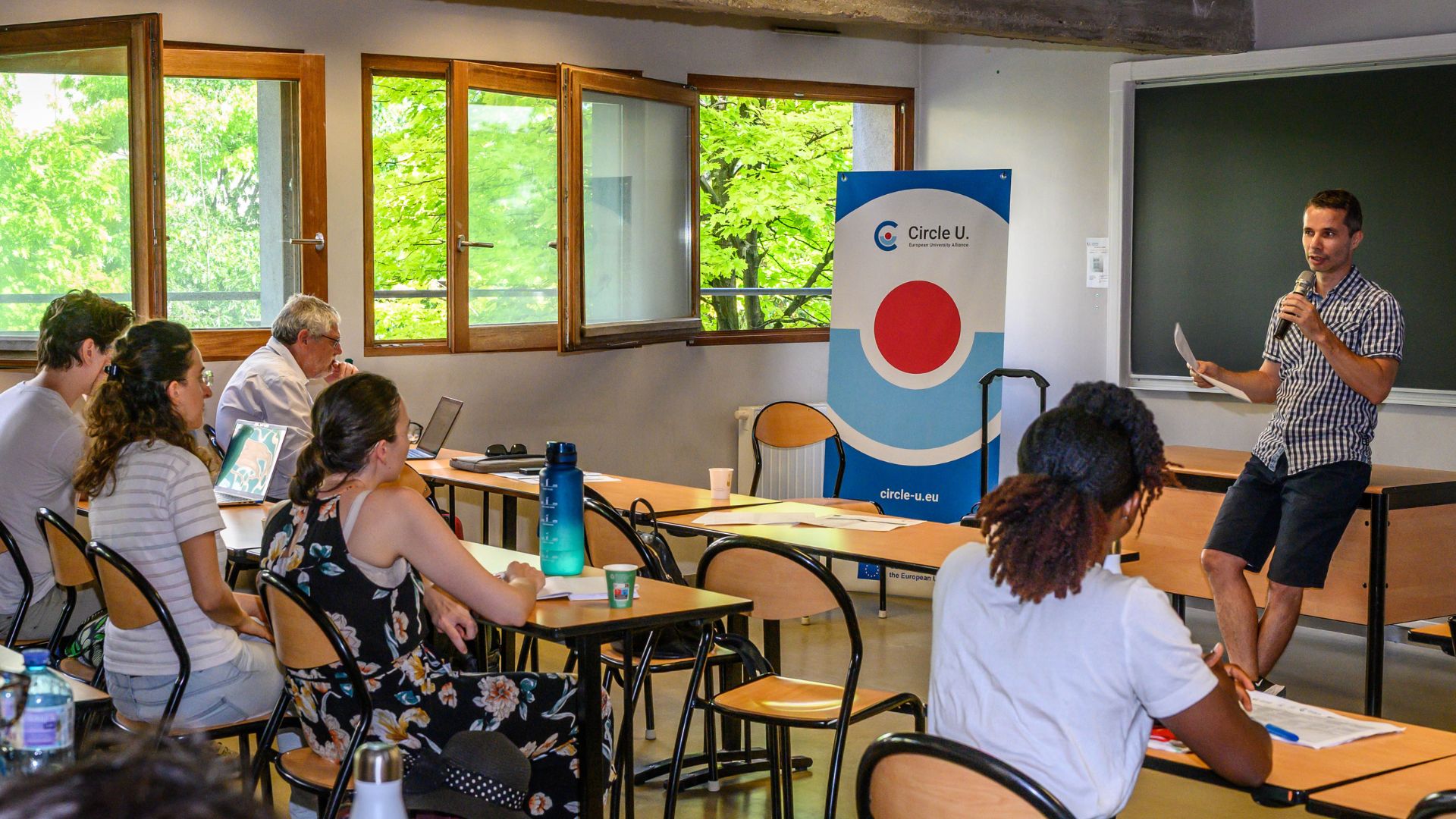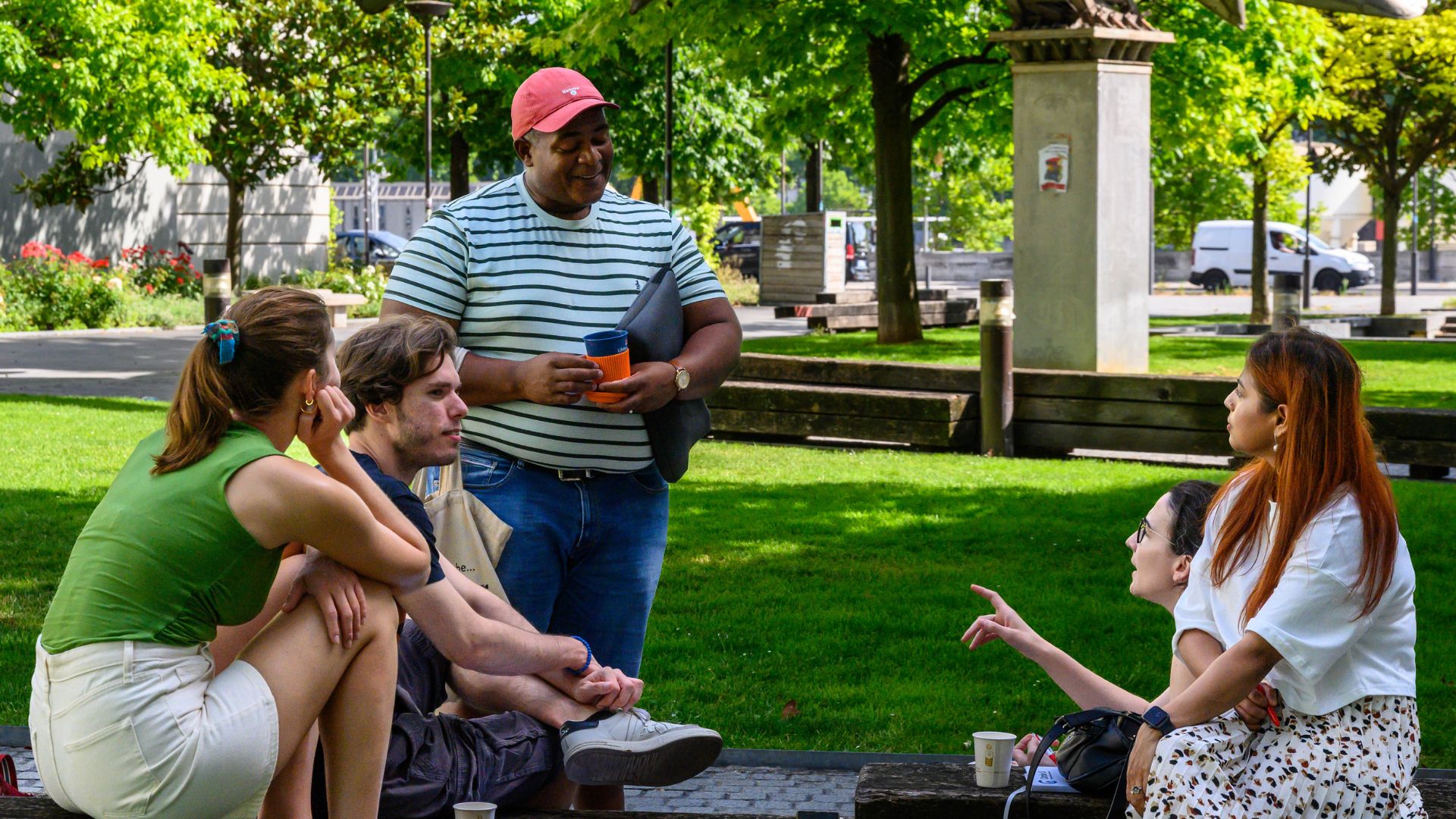ECTS
60 crédits
Niveau d'études visé
BAC +5 (niveau 7)
Durée
1 year
Faculté
Faculté des Sciences
Langue des enseignements
English
Présentation
he MASTER'S in PHYSICS OF COMPLEX SYSTEMS (PCS) is a research-oriented fundamental physics program. Students receive the Master's degree in Physics from the University of Paris Cité "Complex Systems." The program focuses on the study of complex systems through statistical physics, equilibrium and non-equilibrium physics, field theory, stochastic processes, dynamical systems, nonlinear physics, and numerical simulation. The subjects of study are complex networks, graphs, inference, big data, machine learning, active matter, the physics/social science interface, econophysics, soft matter, biological systems, complexity in quantum physics, etc.
This academic program is part of Université Paris Cité's Graduate School of Innovative Materials, connecting master's and doctoral courses with cutting-edge research laboratories. This interdisciplinary graduate school, bringing together physics, chemistry, biology, and medicine, offers students the opportunity to explore the creation of innovative materials to address emerging socioeconomic challenges.
Objectifs
To train future doctoral students in university and CNRS physics laboratories, as well as executives in companies and startups, focusing on big data, social and financial models, etc.
Compétences visées
Obtaining in-depth conceptual knowledge in statistical physics, nonlinear physics, dynamic systems, and interfaces with biological or human sciences, enabling students to address various theoretical or experimental problems in physics or interfaces between physics and other sciences.
Programme
All courses are taught in English. The first semester (S3) coincides with the third semester of the international Master's program in "Physics of Complex Systems" (i-PCS). It takes place in Paris, on the Grands Moulins campus and at Jussieu. It consists of a core curriculum and a selection of electives. The second semester (S4) consists of elective courses and an internship.
Sélectionnez un programme
Master 1 Physique fondamentale et applications - Parcours : Physics of Complex Systems
Master 2 Physique fondamentale et applications - Parcours : Physics of Complex Systems
Nonlinear Physics and Dynamical Systems
3 crédits26hStochastic Processes
6 crédits52hStatistical Field Theory
6 crédits52hComputational Science
6 crédits52hAu choix : 3 parmi 9
Disordered Systems
3 crédits52hNonequilibrium and Active Systems
3 crédits26hQuantum Information
3 crédits26hQuantum Dynamics
3 crédits26hBiophysics
3 crédits26hStatistical Field Theory and Soft Matter
3 crédits26hAdvanced Nonlinear Physics
3 crédits26hThématique 1
3 créditsThématique 2
3 crédits
Internship
18 créditsAu choix : 4 parmi 8
Complex Networks
3 crédits30hMachine Learning
3 crédits30hOut of equilibrium Statistical Physics
3 crédits30hTraffic Modeling
3 crédits30hRandom Matrix Theory and Applications
3 crédits30hEconophysics
3 crédits30hUE générique 3
3 créditsUE générique 4
3 crédits
Stages et projets tutorés
The internship takes place in the fourth semester in a physics research laboratory or in disciplines related to physics. It may be extended beyond the official three-month duration in agreement with the host team and the master's program director.
Contrôle des connaissances
To find out the details of the knowledge and skills testing procedures, we invite you to contact the UFR (see the link to find out more)
Aménagements particuliers
Et après ?
Poursuites d'études
90% doctorat
Passerelle
Teaching competitions, training in promotion, scientific communication.
Débouchés professionnels
Researcher, lecturer-researcher in physics laboratories at universities and the CNRS, as well as executives in companies and start-ups working on “big data”, social and financial models, etc.
Référentiel
Référentiel RNCP
38994
Contacts
Dernière mise à jour le 23 mai 2025
A lire aussi
À l’occasion de la Semaine nationale des Cordées de la réussite 2026, l’Université Paris Cité réaffirme son engagement en faveur de la démocratisation de l’accès à l’enseignement supérieur à travers des actions concrètes, innovantes et ancrées dans les territoires.
Étudiantes et étudiants de l’Université Paris Cité, nous vous donnons rendez-vous le jeudi 19 mars 2026 pour la 2ᵉ édition de cet événement annuel dédié à l’emploi, aux stages et à l’alternance. Près de 30 recruteurs seront présents pour vous proposer des opportunités concrètes et des conseils personnalisés afin de faciliter votre insertion professionnelle. Nouveauté cette année : le Forum des métiers de la transition écologique et de la solidarité vous invitera à réfléchir aux enjeux de l’engagement écologique et solidaire dans le monde du travail au travers de conférence, ateliers et tables rondes.
Vous étudiez à l’Université Paris Cité et vous souhaitez profiter de vos vacances d’été pour renforcer votre CV tout en découvrant un nouveau pays ? Notre université est membre de l’alliance européenne Circle U. et vous permet, à travers son campus ouvert, de candidater gratuitement aux écoles d’été organisées chaque année. Plusieurs thématiques transverses sont abordées comme la Santé Globale, le Climat, la Démocratie ou le Multilinguisme par exemple. Les candidatures sont ouvertes jusqu’au 28 février, renseignez-vous !
Vous êtes doctorant ou doctorante à l’Université Paris Cité et vous souhaitez étendre votre réseau et vos connaissances en Santé Globale ? L’alliance européenne Circle U. vous invite à participer à la nouvelle édition de son école d’été « New avenues for Global Health » qui aura lieu du 6 au 11 juillet 2026 dans les locaux de notre université ! Les candidatures sont acceptées jusqu’au 13 mars.







